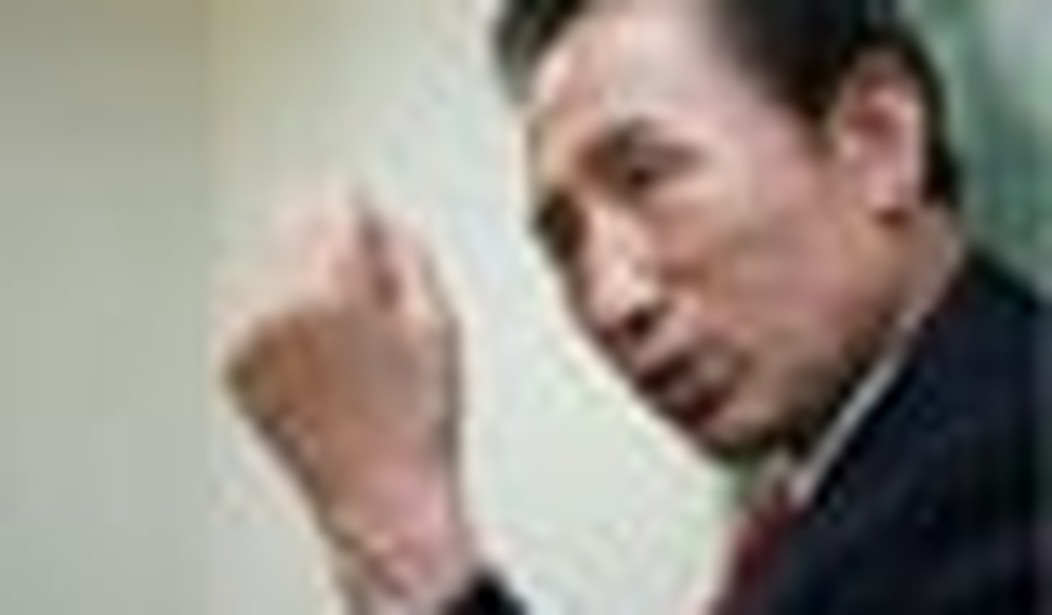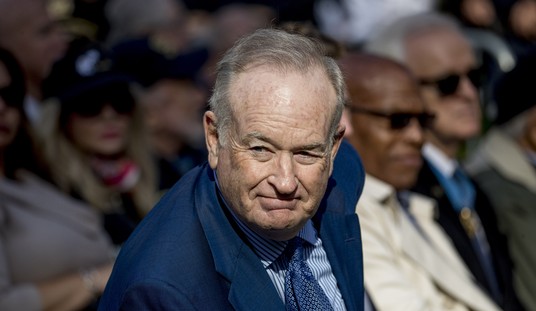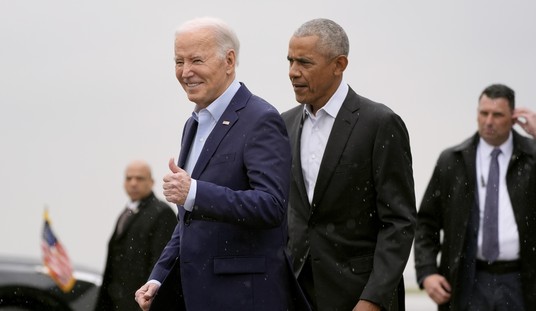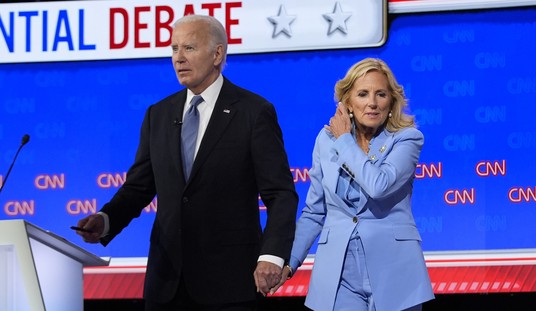South Korean President Lee Myung-bak — also known as “The Bulldozer” — rolls into Washington this week for his first summit with President Obama. He could not be arriving at a more crucial time.
According to U.S. sources, North Korea is preparing to detonate yet another nuclear device. Its first test was in October 2006, and its second occurred last month. A third detonation, if it takes place soon, would indicate an acceleration in Pyongyang’s race to perfect a warhead.
At this moment, reconnaissance satellites are watching North Korea prepare for its fourth long-range missile test. Its third took place in the beginning of April. Its first two occurred in 1998 and 2006. The upcoming launch will, therefore, constitute evidence of an expedited missile program.
Since the missile shot on April 5 and the nuclear detonation on May 25, North Korea has repudiated the armistice that ended fighting in the Korean War and sentenced two American reporters to 12 years of hard labor. This month, a North Korean patrol boat intruded into South Korean waters. The North has also issued threats to start a nuclear war.
In the past, Pyongyang’s provocative acts came one at a time. Now, one closely follows another.
Why is North Korea acting up now?
Of course, there are many factors. There is an internal political struggle over succession. North Korea’s generals need to advertise their weapons work for their Iranian and Syrian customers. Hardline military elements are gaining strength inside the regime as Kim Jong Il’s health fades. The North, in the fourth year of a downturn, needs additional assistance from the international community. And Kim apparently wants to show his displeasure over the tougher — and more sensible — policies of South Korea’s Lee.
But one other factor may best explain the timing of North Korea’s provocations: Washington’s extraordinarily weak response to the early-April missile launch.
Just a day before the test, Stephen Bosworth — President Obama’s part-time envoy for North Korea — warned Pyongyang in stern words not to launch. So what did the American diplomat say after the test? “I think everyone is feeling relatively relaxed about where we are at this point in the process,” Bosworth noted while in Japan in May. “There is not a sense of crisis.” At the same time, the envoy said this: “It is clearly understood that the possibility of direct dialogue between the U.S. and the DPRK is very much with us.”
In a few short sentences, the American diplomat signaled to Pyongyang that Washington’s pre-launch warning was meaningless, that we didn’t think the missile test had any significance, and that we would give the North Koreans what they wanted — direct instead of six-party talks — in response to their provocative act. It was, in short, a green light to the Kim regime to continue pursuing its most destructive and worst ambitions.
Since then, Washington has done virtually nothing to dispel the notion that it has no Korea policy. The Obama administration has been trying to downplay events because it doesn’t know what to do. It stalled for time when delay favored Pyongyang.
The unintended consequence of this dynamic is that it looks as if we cannot stop North Korea.
In the absence of a strategy to defang the regime, the Obama administration has fallen back on the United Nations Security Council. On Friday, the body toughened sanctions on North Korea, but the new measures will have significance only if China implements them — Beijing has previously refused to enforce the weaker 2006 sanctions.
We would all like to think the North Koreans can be pressured with half-measures into giving up their nuclear weapons and joining the international community, but events this decade — and this year — tell us otherwise. And that is why it is so important that President Lee arrives here this week. As the Wall Street Journal‘s Mary Kissel notes, Lee is the first national leader to acknowledge the failure of the Beijing-sponsored talks to disarm Pyongyang. “The North Koreans have gained, or bought, a lot of time through the six-party-talks framework to pursue their own agenda,” Lee said in an interview with her. “I think it’s important now, at this critical point in time, for us not to repeat any past mistakes.”
The United States is not only set to repeat past mistakes, it appears absolutely devoted to them. President Obama shows no indication he will drop his efforts to engage North Korea, even though Chairman Kim has turned down each of his overtures to talk. Lee’s insight is that we need to try new approaches.
One of those approaches is that Washington should put its friends in the region — Lee’s South Korea and Japan — at the center of its efforts to stop North Korea instead of Pyongyang’s best friend, China. If Obama can forge a strong coalition with our partners — an approach that Washington has not tried since last decade — then at least we have the possibility of isolating China. The Chinese do not want to be held responsible for the pariah regime in Pyongyang, and they can be maneuvered into the position where they have no choice but to act responsibly.
Yet before that can happen, the Obama administration needs to acknowledge the failure of Bosworth’s diplomacy and decide to try something new. And all new strategies should involve the soon-to-arrive Lee Myung-bak.








Join the conversation as a VIP Member